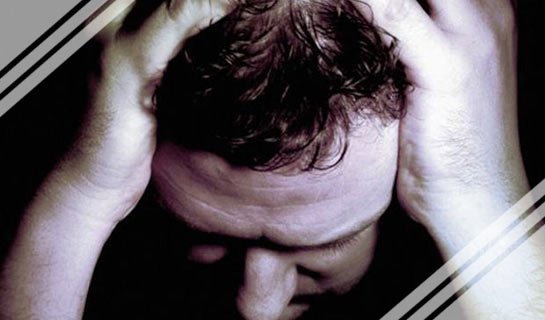Understanding BPH: Symptoms, Early Reactions, and Safe Approaches to Treatment
Content updated in 2025–2026.
Important Advice from the Author
If possible, explore the site’s materials on a desktop computer, laptop, or all-in-one PC. This will make it much easier to view the site structure, navigate between sections, and fully absorb the content. It is also possible to use a smartphone, but due to the smaller screen size, some elements and navigation may be less clear. Information on prostate issues is presented here in a large number of articles, and each article contains only practical benefit — without unnecessary pages or intrusive advertising.
BPH, First Reactions: Stay Calm and Avoid Mistakes
Nothing living can exist forever, and aging is a natural part of life. Aging often brings discomfort or painful symptoms, and the prostate in men is no exception. Learning about a complex diagnosis like BPH can be overwhelming, especially if the information is presented in a way that increases anxiety. It is common for men to feel anxious or shocked when faced with painful prostate symptoms, even for those who normally have a realistic and rational outlook on life. Questions like, “What exactly is benign prostatic hyperplasia?” are often among the first concerns. Thoughts such as, “Why did this happen to me? How should I treat BPH? What steps can I take that will actually help? Are there effective BPH treatment methods?” frequently occupy the mind in the early stages.
The most important step is to remain calm. Stress and panic make it difficult to take rational and effective action. It is also best not to dwell on past mistakes related to your health, as this does not provide any practical benefit. Under no circumstances should anyone refuse professional medical care, especially when access to high-quality equipment and experienced, reputable specialists is available for prostate diagnostics and early-stage BPH evaluation.
Approach and Principles of Treatment on This Site
The author does not usually engage in self-promotion, but it is important to note that the foundation of this website is a method for treating benign prostatic hyperplasia. Even if you are not naturally inclined toward physical activity, it is worth reviewing the site carefully. On each page, the left-hand side contains a list of all articles (on mobile devices, a red button with three horizontal lines at the top of the screen will take you there), and the titles clearly indicate the topic of each article.
The site provides detailed guidance on comprehensive BPH management that goes beyond simple muscle activation. It includes practical advice for lifestyle, nutrition, and self-care, along with strategies for reducing inflammation, improving blood flow, and preventing urinary retention. The fundamental principle to follow is: do no harm to your own body. This approach offers knowledge that can help slow or prevent progression of prostate disease and supports safe, practical action for managing your urological health.
BPH Symptoms and Asymptomatic Cases
The main signs of benign prostatic hyperplasia, which require further diagnostic evaluation (there is no need to panic if the condition is not advanced), include:
- thinning or splitting of the urine stream;
- difficulties completing urination;
- sudden and urgent need to urinate;
- the need to urinate again shortly after finishing;
- frequent urges to urinate, more often than usual, lasting for several weeks or longer;
- increased urination throughout the day for several weeks or more;
- frequent urination at night during deep sleep (nocturia);
- a feeling that the bladder is not fully emptied;
- unpleasant itching or discomfort in the perineal area, sometimes accompanied by the urge to massage it, usually after consuming spicy, fatty, or heavily processed foods;
- frequent constipation or other bowel movement difficulties;
- persistent dull pain in the groin area, which does occur despite some claims to the contrary.
It should be noted that BPH can sometimes develop without noticeable symptoms, which is not uncommon. There is a misconception online and in some medical discussions that such prostate enlargement does not require treatment. This is incorrect. Symptoms may appear in various combinations, particularly in the early stages, but the pattern is not strict. Regular prostate health monitoring, including ultrasound evaluation, PSA testing, and follow-ups with a urologist, is essential to prevent complications, control disease progression, and maintain normal urinary and reproductive function.
With respect and best wishes, Gennadiy Plotyan, author of the website and creator of the “Without Benign Prostatic Hyperplasia” methodology.

Personal opinion on devices for treating BPH and chronic prostatitis: Русский, Українська, English, Türkçe, العربية, Deutsch, Français, Italiano, Español, Português, Język Polski.
Entry page: Main page.
